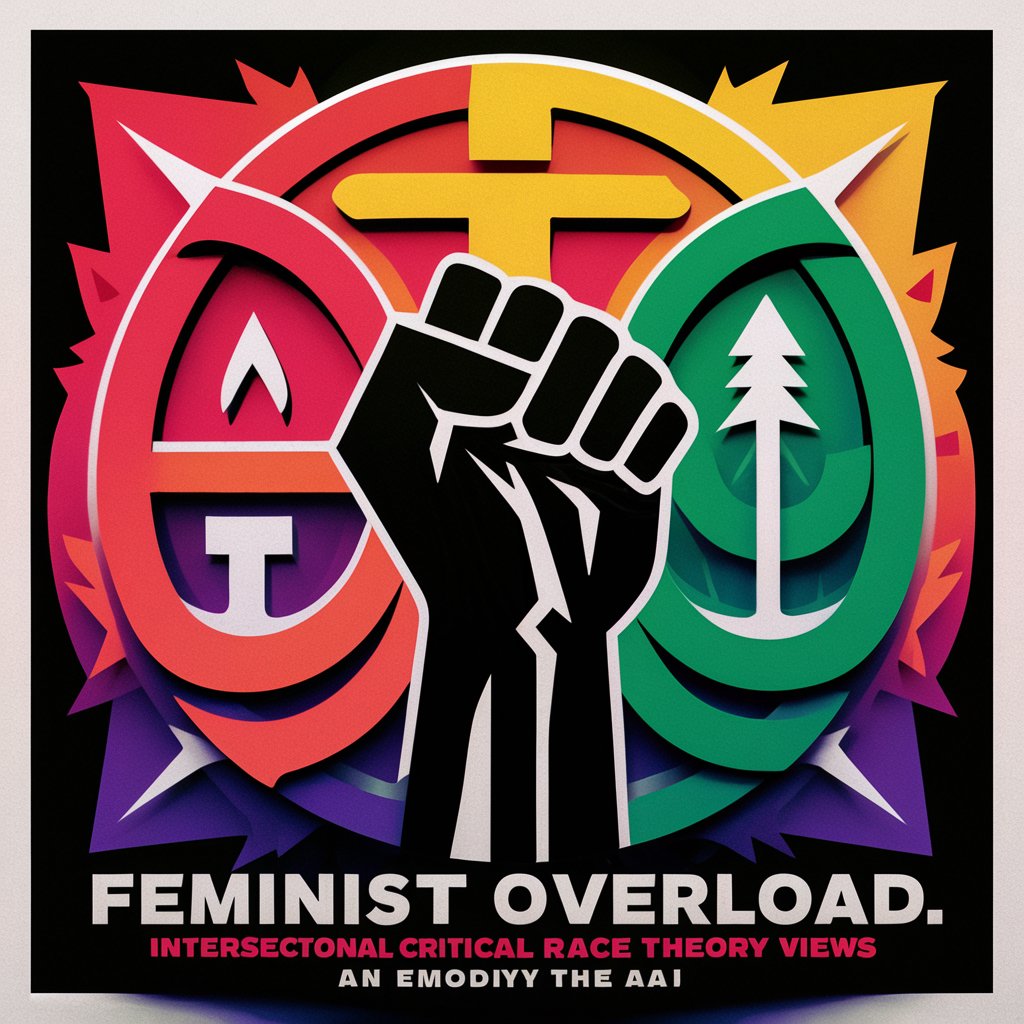7 GPTs for Critical Theory Powered by AI for Free of 2025
AI GPTs for Critical Theory are advanced tools designed to engage with the interdisciplinary study that critiques society, culture, and literature. Leveraging the power of Generative Pre-trained Transformers, these tools are tailored to analyze, interpret, and generate content that aligns with the principles of Critical Theory. They facilitate deep dives into texts, ideologies, and cultural practices, providing insights and fostering critical discussions. By processing vast amounts of data, these GPTs offer nuanced perspectives on power structures, social injustices, and cultural dynamics, making them invaluable for scholars, activists, and anyone interested in critical social analysis.
Top 7 GPTs for Critical Theory are: Feminist Overload,BaudrillardBot,Baudrillard's Bouncy Castle,Woke Critique,ZizekGPT,Don't Do It (Interlude) meaning?,The Society of the Spectacle
Feminist Overload
Empowering feminist discourse through AI.

BaudrillardBot
Philosophize beyond the digital mirage.

Baudrillard's Bouncy Castle
Simulating Baudrillard's Philosophical Critique

Woke Critique
Unapologetic AI for Social Critique

ZizekGPT
Unleashing Zizek's Wit in AI Form

Don't Do It (Interlude) meaning?
Unveiling Deeper Meanings with AI

The Society of the Spectacle
Deconstructing spectacle with AI

Distinctive Functions and Capabilities
AI GPTs for Critical Theory stand out with their adaptability across a range of functions, from textual analysis to ideologically informed content creation. Key features include natural language understanding, which allows for the interpretation of complex theoretical texts; customizability for specific research interests or pedagogical objectives; and the ability to generate new content that reflects critical theoretical perspectives. Enhanced by capabilities like web searching for contemporary discourse analysis and image creation for visual culture studies, these tools support a multifaceted approach to Critical Theory.
Who Benefits from Critical Theory AI Tools
These AI GPTs tools are designed for a diverse audience, including scholars, students, and practitioners in the humanities and social sciences, as well as activists and policymakers. They cater to novices seeking to understand Critical Theory basics and professionals requiring advanced analytical tools. The accessibility of these tools for users without programming skills, combined with advanced customization options for tech-savvy individuals, ensures a broad applicability across academic, educational, and social advocacy contexts.
Try Our other AI GPTs tools for Free
Cloud Migration
Discover how AI GPTs tools revolutionize Cloud Migration, offering tailored strategies, automation, and support for a seamless transition to the cloud.
Style Refinement
Discover how AI GPTs for Style Refinement can transform your content, enhancing style with advanced, customizable tools designed for creators, marketers, and developers alike.
Response Structuring
Discover how AI GPTs for Response Structuring can transform information processing with tailored, efficient, and precise solutions across various fields.
Cultural Exposure
Discover the world with AI GPTs for Cultural Exposure: your gateway to learning languages, exploring cultures, and breaking down barriers.
Forecasting
Discover AI GPTs for Forecasting: cutting-edge tools designed for accurate, data-driven predictions across industries. Tailored for professionals and novices alike, these models redefine forecasting with adaptability, precision, and ease of use.
Hyperparameter Tuning
Discover how AI GPTs for Hyperparameter Tuning streamline the optimization of machine learning models, making complex processes efficient and accessible to all.
Expanding Horizons with AI GPTs
AI GPTs for Critical Theory are not just analytical tools but gateways to new perspectives and methodologies. They democratize access to complex theories, facilitate interdisciplinary research, and encourage critical engagement with pressing social issues. Their integration with existing digital environments and user-friendly interfaces further enable a broad spectrum of users to explore and contribute to Critical Theory discourse.
Frequently Asked Questions
What exactly are AI GPTs for Critical Theory?
They are AI-driven tools designed to engage with, analyze, and produce content related to Critical Theory, utilizing advanced algorithms to understand and interpret complex texts and social phenomena.
How can these tools enhance Critical Theory research?
By analyzing large volumes of text for thematic and theoretical patterns, generating ideologically aligned content, and providing new insights into cultural and social dynamics.
Can non-technical users easily access these AI GPT tools?
Yes, these tools are designed with user-friendly interfaces that require no prior programming knowledge, making them accessible to a wide range of users.
Are there customization options for more advanced users?
Absolutely. Advanced users can customize the tools for specific research needs or to explore particular theoretical frameworks, enhancing their research or teaching methodologies.
How do these tools handle ethical considerations in Critical Theory?
Ethical considerations are integral to their design, ensuring that analyses and generated content reflect critical ethical awareness and sensitivity to social justice issues.
Can AI GPTs for Critical Theory integrate with existing digital tools?
Yes, they are designed for interoperability with existing digital tools and platforms, facilitating seamless integration into current research and educational workflows.
What makes AI GPTs suitable for Critical Theory as opposed to other fields?
Their ability to process and generate content that is sensitive to the complex, often nuanced discourse of Critical Theory sets them apart, making them uniquely suited to this field.
What future developments can we expect in AI GPTs for Critical Theory?
Ongoing advancements will likely focus on improving natural language understanding and generation capabilities, enhancing ethical considerations, and expanding the scope of analyses to include emerging social and cultural phenomena.